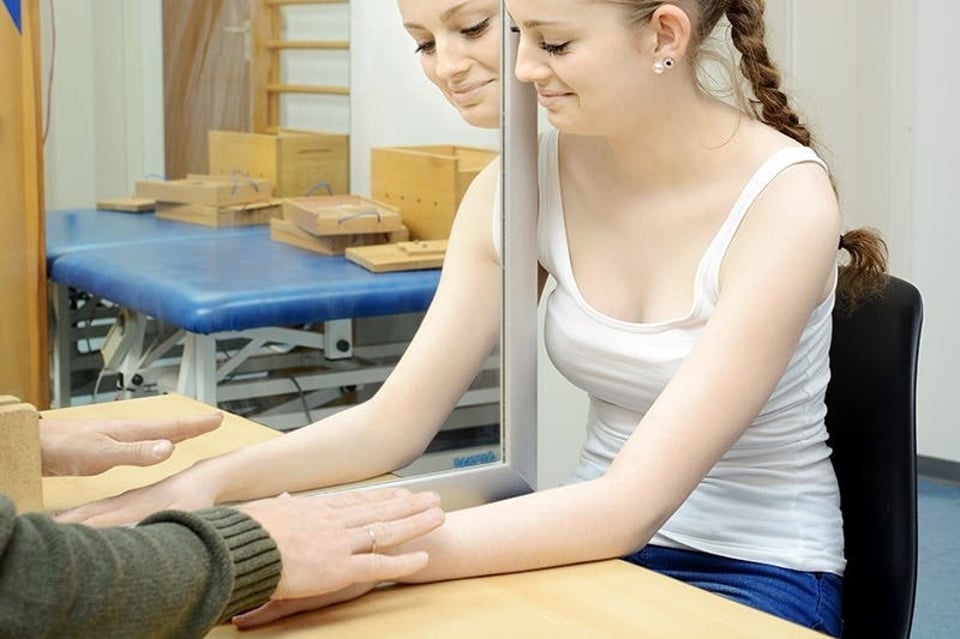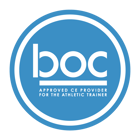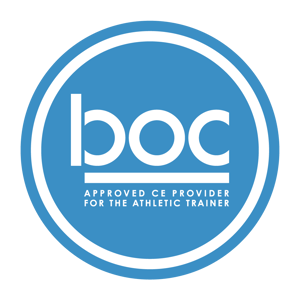Motor Imagery in Rehabilitation: The Art and Science of Brain Training for Physical Rehabilitation

Description
Motor imagery is imagined movement performance, absent of voluntary physical motion. This course on motor imagery provides a thorough overview of the different types of motor imagery available in the rehabilitative setting, while discussing the evidence-based science behind the practice. This material delves into motor imagery as a novel addition to traditional therapeutic methods and modalities to improve the outcomes for clients who are acute, have chronic conditions, have pain, have experienced a plateau in their progress, or who have functional limitations from neuromuscular disorders. Examples and case studies included in this course are patients with stroke, Parkinson’s, MS, SCI, chronic pain, or orthopedic conditions. Motor imagery (including virtual reality, mirror therapy, graded motor imagery, self- and expert-guided motor imagery) is an effective method of neuromuscular rehabilitation via neuroplastic brain training that teaches clients to move comfortably with the proper muscular coordination and sequencing without pain in order to increase function. This course will be effective in your clinical practice as you learn how to reset and train the neuromuscular system to attain the desired skills of your client in both the orthopedic and neurologic rehabilitative settings.



Physicourses is an AOTA Approved Provider of professional development. Course approval ID# 6295. This distance learning-independent course is offered at 0.4 CEUs Intermediate Level, OT Service Delivery, Foundational Knowledge. AOTA does not endorse specific course content, products, or clinical procedures.
Available Course Credits
| Alaska State PT & OT Board | 4.00 | ||
 |
AOTA | 4.00 | |
| Arizona State Board of Physical Therapy | 4.00 | ||
| Arkansas State Board of Physcial Thearpy | 4.00 | ||
 |
BOC | 4.00 | |
| California Physical Therapy Board | 4.00 | ||
| Colorado Division of Professions and Occupations | 4.00 | ||
| Connecticut Department of Public Health | 4.00 | ||
| Delaware Examining Board of Physical Therapists and Athletic Trainers | 4.00 | ||
| District Of Columbia Department of Health | 4.00 | ||
| FPTA | 4.00 | ||
| Georgia State Board of Physical Therapy | 4.00 | ||
| Hawaii Board of Physical Therapy | 4.00 | ||
| Idaho Physical Therapy Licensure Board | 4.00 | ||
| Indiana Physical Therapy Board | 4.00 | ||
| Iowa Board of Physical Therapy and Occupational Therapy | 4.00 | ||
| Kansas State Board of Healing Arts | 4.00 | ||
| Kentucky Board of Physical Therapy | 4.00 | ||
| Maine Board of Physical Therapy | 4.00 | ||
| Maryland Board of Physical Therapy Examiners | 0.40 | ||
| Massachusetts Board of Allied Health Professionals | 4.00 | ||
| Michigan Board of Physical Therapy | 4.00 | ||
| Mississippi State Board of Physical Therapy | 4.00 | ||
| Missouri Advisory Commission for Physical Therapists | 4.00 | ||
| Montana Board of Physical Therapy Examiners | 4.00 | ||
| New Mexico Physical Therapy Board | 4.00 | ||
| North Carolina Board of Physical Therapy Examiners | 4.00 | ||
| North Dakota Board of Physical Therapy | 4.00 | ||
| Office of Professional Regulation, Vermont Secretary of State | 4.00 | ||
| Oklahoma Board of Medical Licensure and Supervision - Physical Therapy | 4.00 | ||
| Oregon Board of Physical Therapy | 4.00 | ||
| Pennsylvania Bureau of Professional and Occupational Affairs - Physical Therapy | 4.00 | ||
| Physical Therapy Governing Board New Hampshire | 4.00 | ||
| South Carolina Board of Physical Therapy | 4.00 | ||
| South Dakota Physical Therapy License Board | 4.00 | ||
| State of Alabama Board of Physical Therapy | 4.00 | ||
| State of Rhode Island Department of Health | 4.00 | ||
| Tennessee Board of Physical Therapy | 4.00 | ||
| Utah Physical Therapy Licensing Board | 4.00 | ||
| Virginia Board of Physical Therapy | 4.00 | ||
| Washington State Board of Physical Therapy | 4.00 | ||
| Wisconsin Physical Therapy License Board | 4.00 | ||
| Wyoming Board of Physical Therapy | 4.00 |
Course Content
| 1331 Motor Imagery in Rehabilitation: The Art and Science of Brain Training for Physical Rehabilitation | Module | ||
| Course Evaluation | Module |
Rebecca Matalon, PT, DPT
Dr. Matalon began researching motor imagery during her physical therapy education at Elon University in North Carolina, where she conducted a number of independent research studies. There, she copyrighted an imagery script specifically for rehabilitative purposes. She has presented her research to inquiring community groups in North Carolina and California, as well as at regional and national physical therapy conferences. Dr. Matalon has published her research involving a case study participant in alleviating phantom limb pain and returning the participant to functional walking and balance tasks for improved quality of life, Functional Rehabilitation of a Person with Transfemoral Amputation through Guided Motor Imagery: a Case Study.
Dr. Matalon is passionate about her work with cognitive and neuroscience to heal from the inside out and practices motor imagery clinically in Northern California with patients requiring orthopedic, neurologic, or psychosomatic rehabilitation. Dr. Matalon enjoys taking a holistic approach to healing to engage the mind, body, and soul through her physical therapy practice while incorporating motor imagery, Reiki, and Pilates instruction. By educating about motor imagery, Dr. Matalon hopes to lead other therapists in guiding clients to effective and rewarding rehabilitation for an improved quality of life.
1331 Motor Imagery in Rehabilitation—Course Objectives
After successfully completing this course, the learner will be able to:
1. Recall how to accurately define motor imagery in order to provide an adequate explanation to
healthcare professionals and patients.
2. Clearly differentiate between the different motor imagery types.
3. List the positive outcomes of motor imagery treatment in the care of patients with stroke,
MS, SCI, Parkinson’s, orthopedic injuries, and chronic pain.
4. Recall the protocol necessary for implementing the types of motor imagery. 5.
Independently list specific benefits of motor imagery practice for both participants and
therapists.
6. Appropriately identify patients best suited for motor imagery referral who will experience the
greatest benefit from care.
7. Recall the big picture of how motor imagery works: neuroplasticity, muscle activation, and
behavior building.
8. Recognize how to use motor imagery in patients with varied diagnoses using case studies.
1331 Motor Imagery in Rehabilitation—Table of Contents Page #
HOUR 1
Course Instructions 2
About the Author 3
Course Description 4
Course Objectives 5
Table of Contents 6
Chapter 1: Introduction 7
What Is Motor Imagery?
Motor Imagery Principles 8
What Motor Imagery Can Be Used For
Why Should You Care?
Chapter 2: Types of Motor Imagery and Practice Protocol 12
Types of Motor Imagery
Self-Guided
Virtual Reality
Graded Motor Imagery
HOUR 2
Expert-Guided 16
Basic Practitioner Protocol
Chapter 3: How Motor Imagery Works: The Neuroscience 21
Muscle Memory
Neurocognitive Processing
Neuroplasticity
Chapter 4: Muscular Potential 29
HOUR 3
Chapter 5: Behavioral Effect 32
Chapter 6: Evidence-Based Practice 35
Motor Imagery Research in the Treatment of Various Diagnoses and
Conditions Stroke
Parkinson’s Disease
Case Study #1
MS
Pain
Case Study #2
SCI
Orthopedic Rehab
Participant Subjective Reports
Testimonials
Case Study #3
HOUR 4
Chapter 7: Benefits of Motor Imagery 42 Who Benefits?
Cases Motor Imagery Most Often Treats and Appropriate Referrals
Benefits of Motor Imagery for the Participant
Benefits of Motor Imagery for the Therapist
Potential Billing Options for Motor Imagery
Chapter 8: Conclusion 45
References 47
Examination 62
Evaluation 65
Customer Cancellation:
Customers may request cancellations of their enrollment or subscription in our digital or live educational services, subject to the terms outlined below. Cancellation requests must be made in writing, either through email or through our designated cancellation process.
Refund Policy:
Refunds will be provided according to the following guidelines: i) For cancellation requests made within 5 days of the initial enrollment or subscription, a full refund will be issued. Refunds will be issued using the same method of payment used for the original transaction, unless otherwise agreed upon in writing.
Provider Cancellation:
In the event Physicourses cancels your course, you will be issued a full refund or transfered to a course of equal or greater value.
Physicourses Conflict of Interest Disclosure Policy for Authors and Staff:
All persons in a position to control the content of any educational activity (authors or staff from Physicourses) are required to disclose to Physicourses any potentially biasing or potential conflict of interests in relationships of a financial, professional, or personal nature.
The intent of this disclosure is not to prevent authors or staff with commercial affiliations from planning an educational activity, or to prevent a Presenter with commercial affiliations from presenting, but rather to inform Physicourses of any potentially biasing relationships so that conflicts are resolved prior to the activity.
It is the policy of Physicourses to ensure balance, independence, objectivity and scientific rigor in all of its continuing education activities. All relevant conflicts of interest identified by the planner, presenter, or as determined by Physicourses will be disclosed to the audience verbally and in writing prior to the start of the presentation.
Definitions for Authors/Staff:
Relevant financial relationships are those relationships in which you benefit by receiving a salary, royalty, intellectual property rights, gift, speaking fee, consulting fee, honoraria, ownership interest (e.g., stocks, stock options, or other ownership interest, excluding diversified mutual funds), or other financial benefit. Financial relationships can also include “contracted research” where the institution gets the grant and manages the funds and you are the principal or named investigator on the grant.
Educational Level: Intermediate
Target Audience: PT, PTA, OT, OTA, ATC
Course Completion Requirements: Passing an online exam with 70% or greater will be required to earn continuing education credit
This course is approved for 0.4 CEUS. 4 contact hours
Physicourses is committed to ensuring accessibility to the most extensive audience possible. If you have any questions or special needs requests, please contact us at info@physicourses.com.